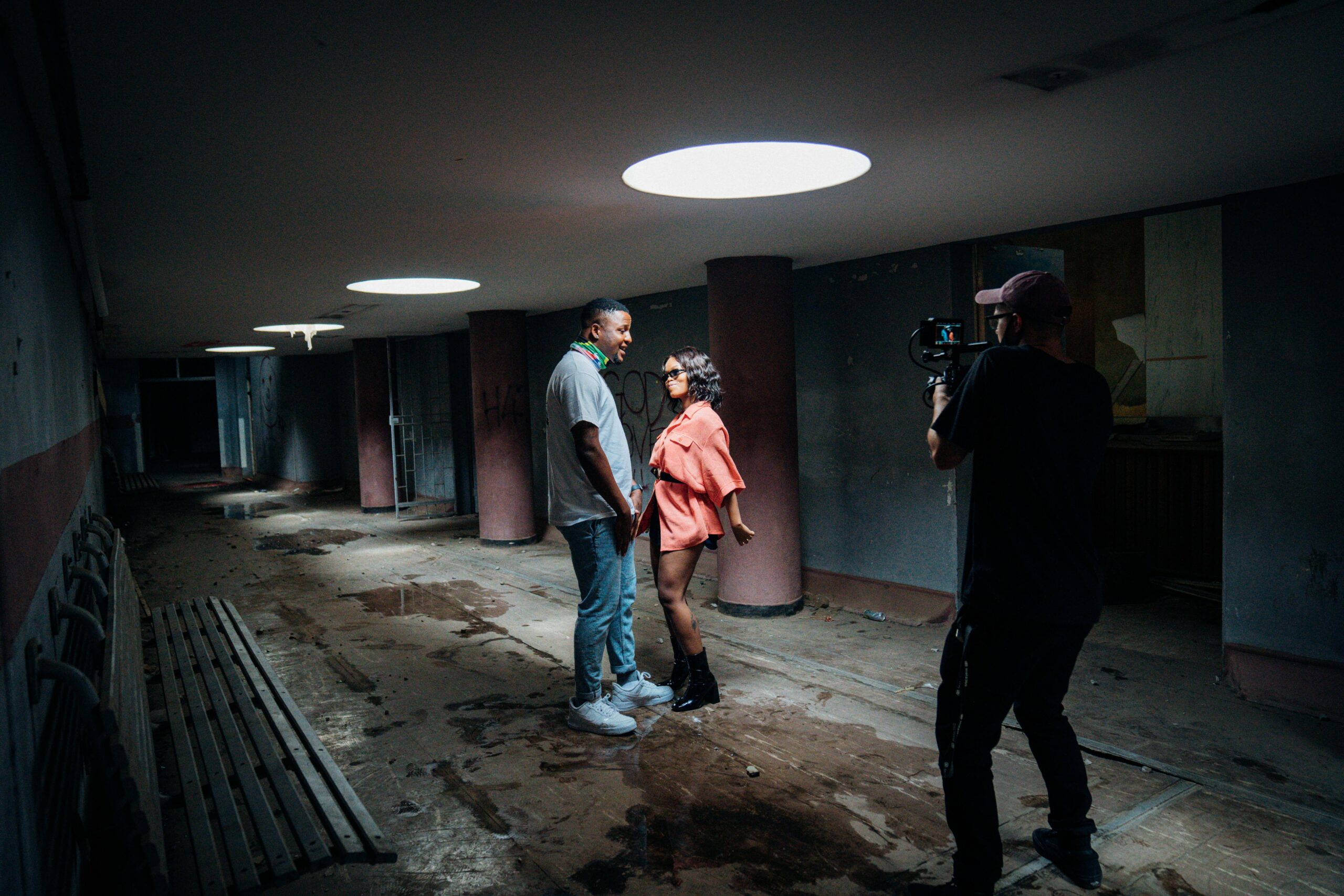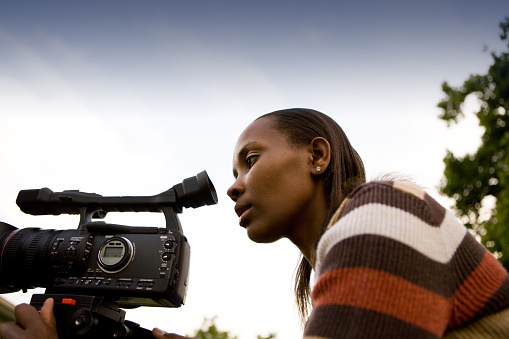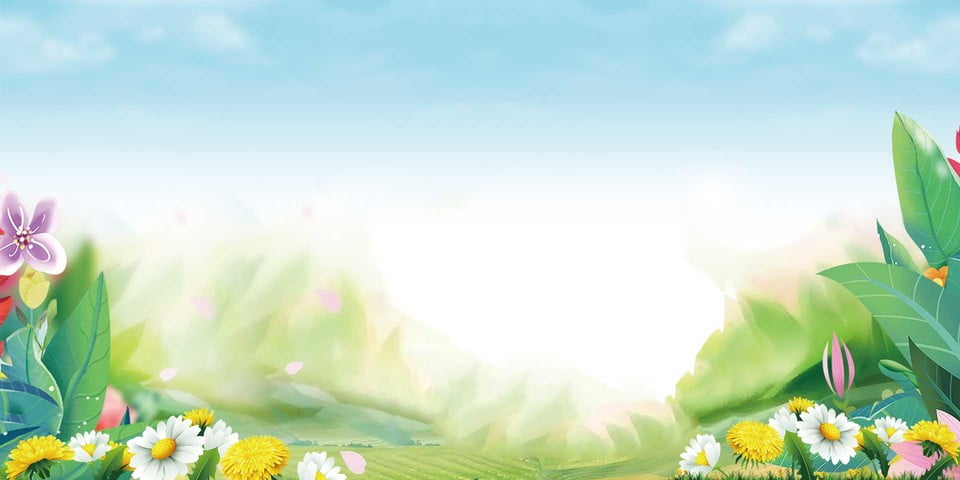Abouna:
Daratt and A Season in France, Chad-based filmmaker Mahamat-Saleh Haroun has been critically appreciated for his work. Abouna, a masterpiece of African Films, his best movie in my opinion. The love and sorrow rich in understated compassion and infused with a deep tenderness for children. As one youngster prepares to leave the realm of childhood considerably sooner than his lonely sibling, a late-flowering love tale enriches and complicates their bond.
Their father’s disappearance, who abandoned the family home when they were 15 and 8, haunts two brothers. They search for their father in heartbreaking but funny scenes in the film. To their astonishment and confusion, when they inquire about their father and mother responds only to say that he is “irresponsible,” a term that they do not understand. Although the events of two young boys’ lives are packed into just over an hour, it maintains a leisurely narrative style.
That doesn’t bother or annoy the audience; the performances are calm and thoroughly felt, and so are they themselves. They are finally sent to religious school, where one of the lads meets a female. This picture is full of pathos and sweetness.
Delineation:
Apolline Traoré, the African Films director, was raised in Burkina Faso. In addition, she received her education in the United States before returning to her native France to collaborate with Idrissa Ouédraogo. Borders is her third feature-length film, a road movie about four ladies traveling from Senegal to Nigeria via stunningly portrayed landscapes. We are experiencing dramatic, surprising, or comical moments on a hot and dusty highway.
Touki Bouki is the third person mentioned:
They did their part two years ago to bring back the memories of one of Africa’s most mystical riches. The first experimental African Films is believed to be this one. On a motorcycle, Jay-Z sat behind Beyoncé, who was holding an enormous pair of zebu horns.
Touki Bouki, by Djibril Diop Mambéty, had a core image:
They look like Jean-Paul Belmondo and Jean Seberg in Breathless or Warren Beatty and Faye Dunaway in Bonnie and Clyde, two Senegalese scofflaws who ride bikes together. Mory and Ants are a young Senegalese couple who wish to leave their country and live in Europe. To meet their immediate financial needs, they must resort to criminal activity, such as theft, fraud, prostitution, or burglary. There is a fluid, rangy liveliness to the bouncing and pinballing between scenes and ideas throughout the movie.
Anta appears to be the only one who truly wants to leave Senegal. For some strange reason, Mory feels bound to this location by a sense of allegiance. As though only Senegal will allow his machismo to bloom, despite the symbolism of his motorcycle coming to grief. Touki Bouki’s revolutionary energy made Mambéty a one-person New Wave in Africa.
The Nightingale’s Psalm:
Henry Barakat, an Egyptian filmmaker, has adapted a novel by Taha Hussein into an epic retribution melodrama, or Beauty and the Beast fable. Amna, a young woman, sees her sister’s death at the hands of her uncle and is heartbroken. She was allegedly excommunicated because she had “disgraced” her family. She tracks down the man who led her sister astray, takes on the role of a maid in his home, and plans to kill him. However, he falls for her, and she may fall for him as well.
The Almighty’s carcass:
Terence Rattigan’s African Films The Yellow Rolls-Royce is a good comparison to Dominique Loreau’s Divine Carcass. This is the narrative of a 1955 Peugeot in Cotonou, Benin, and the people who come to own it. Joseph, the cook of an overseas development worker, steals the vehicle and uses it to run an unlawful taxi service. As soon as the last of its parts have failed. A sculptor fashioned it into the shape of a Voodoo god who presides over the residents of a nearby village, leaving it along the roadside. A wry, enigmatic look at colonialism’s intricacies.
The Darkness:
The “father of African cinema,” Senegalese writer and director Ousmane Sembène made his breakthrough with this movie. On the surface, it’s a simple story about sexual politics and cultural standards in an empire. Actress Mbissine Thérèse Diop plays Diouana in the film. It was annoying in the south of France for a young woman from Dakar.
As a result, it isn’t quite what she had hoped for. A servant, she’s kept in the house and sexually harassed by her bosses and visitors. Throughout her suffering, we get flashbacks to her life in Senegal, which is everything but cheerful. Sembène captured the essence of empire and servitude through broad topics and an intimate storytelling approach. In Mamouna Doucouré’s Cuties, Diop reprises his role as a village elder after a long hiatus.
Yeelen:
Souleymane Cissé, a Malian filmmaker, has created a magical adventure story. That year, it was the Jury Prize winner at Cannes for Best Foreign Language. The story takes place in the distant past and depicts a father-son argument. Niankoro, a young man from the neighborhood, decides to embark on a journey searching for inner peace and power. His father, who abandoned him and his mother, will need it. Compared to 2001: A Space Odyssey since this was opened with a scene of a sunrise on the horizon. Throughout the African Films, “Yellen,” or “brightness,” is referred to as “something which produces the world again each morning.”
Stop No. 8 in Cairo:
To use the expression “all human life is here” to describe Youssef Chahine’s tragicomic masterwork is an understatement. Zenawi, the newspaper vendor, is played by Chahine himself, and his unrequited love for Hanuma, the lemonade vendor, is shown in a blazingly emotional drama set in Cairo Station. Chane leads his large ensemble with exuberant vitality, spontaneity, and the results are electrifying. In addition to a train-carrying rock’n’roll number performed by a group credited as Mike and his Skyrockets, he has many highly stylized set pieces.
The African Films, the mood darkens, and influences from Hitchcock and Powell can be seen. Finally, Cairo Station takes on the aspect of a tragedy because of its careful attention to the classical unity of time and place it observes.
After Qinawi is convinced of the need for violence, Chahine comes up with a brilliant shot. Cut to a seemingly complex and absurd outdoor knife shop, where a frightening assortment of large and small knives are displayed. Directly to the camera, an aide asks the enraged would-be assassin. It has a lovely, melancholy, black comedic quality to it.





